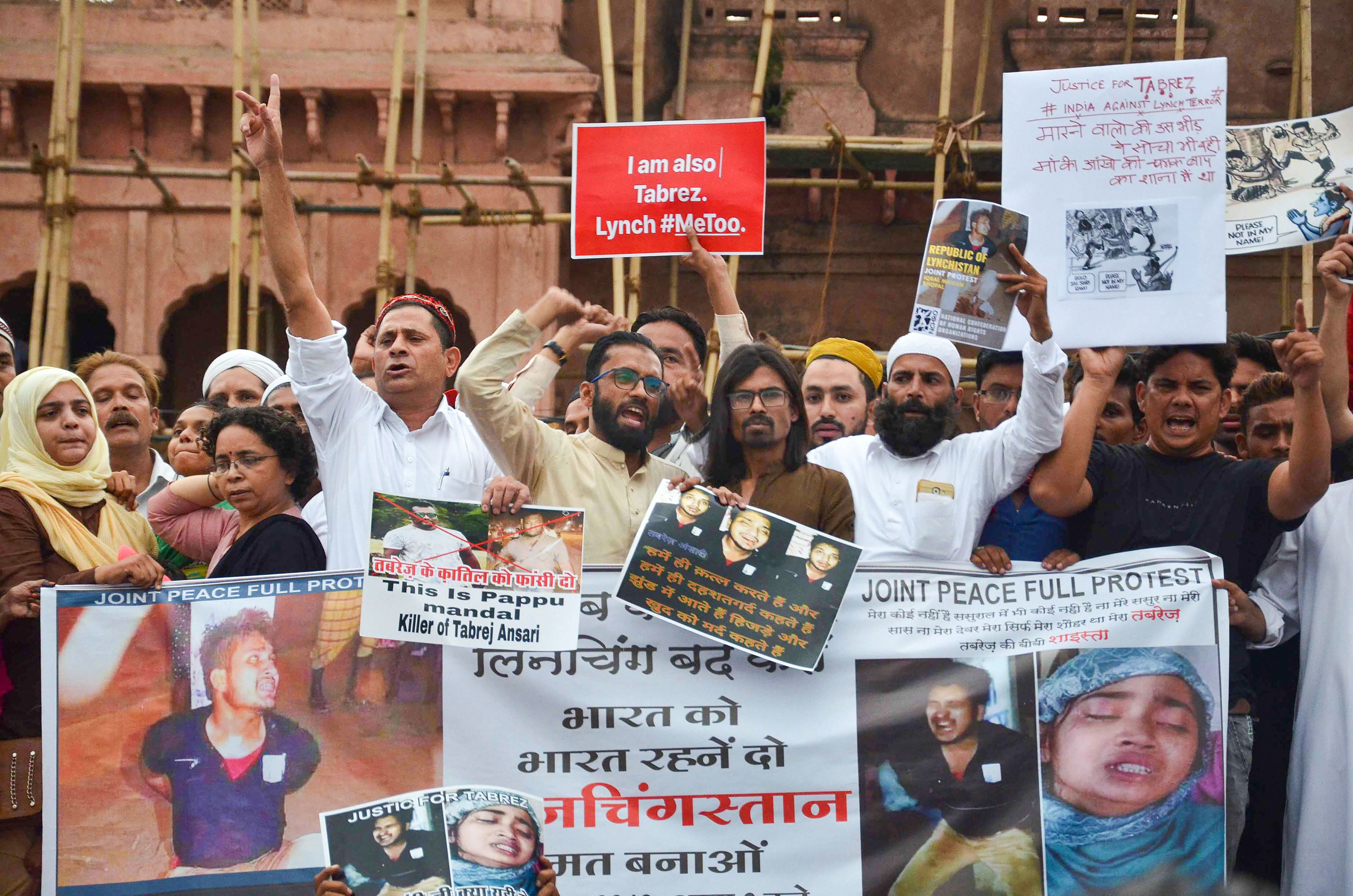A video clip that showed Tabrez Ansari, a youth who died after he was tied to a pole and beaten in Jharkhand three months ago, being forced to chant “Jai Shri Ram” and “Jai Hanuman” was not tampered with, police sources told The Telegraph on the basis of a forensic report.
The disclosure came at a time it has been confirmed that the police had dropped murder charges against nearly a dozen of the accused. Instead, the relatively milder charge of culpable homicide not amounting to murder has been invoked.
On the suspicion that he was a bike thief, Tabrez was mercilessly beaten in mid-June at Dhatkidih village in Seraikela-Kharsawan district, around 35km from Jamshedpur. Jailed, his condition had deteriorated and he died in a hospital on June 22.
The police in Jharkhand, where the BJP is in power, had cast doubts on the authenticity of the video clip. The police had said the audio and video contents were out of sync and sent the tape to the Central Forensic Science Laboratory in Chandigarh.
On Tuesday, Seraikela-Kharsawan superintendent of police Karthik S. said the police had received the lab report. He said the report would be submitted to the court, declining to discuss the content.
The police sources later said the lab concluded that the video clip had not been tampered with.
Altaf Hussain, the advocate representing Tabrez’s widow Shahista Perveen, echoed the police sources. “It has been found true that Tabrez was forced to chant ‘Jai Shri Ram’. That is why Section 295A (of the IPC, deliberate and malicious acts intended to outrage religious feelings) has been applied,” Hussain said.
Earlier this month, Shahista had filed a petition in the court of Seraikela-Kharsawan chief judicial magistrate Manju Kumari against the police’s decision to change Section 302 (murder) to 304 (culpable homicide not amounting to murder) against the arrested accused in the chargesheet filed on July 23.
“The case is yet to be taken cognisance of by the CJM court and is awaiting sanction from the state government. We would like the CJM to take up the case including Section 302 instead of 304,” said Hussain, the advocate.
Section 302 can lead to a death sentence while the maximum punishment under Section 304 is life in prison.
The police defended their decision to drop the charge of murder.
“We had to change the section for two reasons,” said Chandan Kumar Vats, Seraikela deputy superintendent of police (headquarters).
“The villagers did not have any intention to kill the victim as they had themselves called up the police. Second, the medical report did not substantiate the murder charge. The Seraikela doctors’ report termed the death as due to cardiac arrest and the haemorrhage in the head was not fatal. The doctors of the MGM Medical College and Hospital termed the reason for death as a combination of cardiac arrest and head injury,” Vats added.
SP Karthik said changing the section in the chargesheet would not lighten the case against the accused.
“I would like to assure (you) that changing to 304 IPC instead of 302 IPC would not make the case lighter against the accused as both are serious offences. We changed the section based on post-mortem reports from medical experts in Seraikela and also from Jamshedpur. We have a watertight case diary to ensure punishment is given to the accused,” the SP said.











